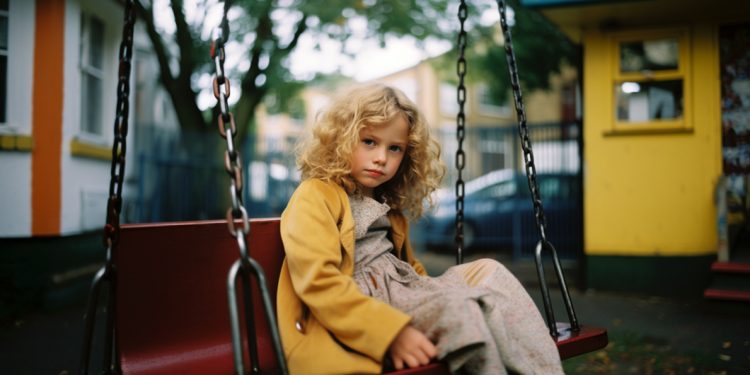Respecting Boundaries, Prioritising Children: Maintaining Peace During A Divorce

In life, we will likely experience countless life-changing events. Each event can change our direction and how we approach different situations – good and bad. One event, in which 113,505 took place in 2021, is divorce.
Divorce is a challenging life event that can leave emotional scars and disrupt the lives of all involved. Amidst the tumultuous emotions and legal processes, it is crucial to remember that maintaining peace during a divorce is not only possible but necessary, especially when children are involved.
Respecting boundaries and prioritising the well-being of children can create a smoother transition for everyone.
Here are some of the ways that can be helpful for individuals to navigate this delicate process with understanding and compassion.
Understanding Boundaries In The Context Of Divorce
When two people decide to part ways, emotions can run high. The lines between personal boundaries may become blurred. Boundaries are the emotional, physical, and mental limits that define our individuality and protect us from being emotionally overwhelmed. These boundaries can be tested during a divorce, leading to conflicts and prolonged emotional distress.
Setting clear boundaries is essential to help maintain peace during a divorce. This involves recognising and communicating each other’s needs and limits to create a more respectful and empathetic environment. Additionally, understanding the consequences of neglecting boundaries, especially concerning the welfare of children, should motivate both parties to prioritise respect and understanding.
Aside from setting boundaries, it is equally as important to respect the boundaries put in place. This includes refraining from using children as pawns or tools to inflict emotional harm on the other partner. Instead, it is crucial to maintain a supportive and nurturing environment for them as they adjust to the changes in their family dynamic.
Communicating Effectively With One Another
Each divorce will have stemmed from different situations and circumstances. Some result from a mutual agreement, and others can lead to greater tension and friction between former marital partners. Throughout the divorce process, there are numerous obstacles to overcome. One of the most significant challenges during a divorce is effective communication. Emotions can cloud judgment. This clouded judgement can subsequently lead to misunderstandings and conflicts. However, open and honest communication is the cornerstone of a peaceful divorce.
To improve communication, both partners should practice active listening and strive to understand each other’s perspectives without judgment. Using “I” statements to express emotions can help convey feelings without blame, contributing to more constructive conversations. It is also crucial to keep discussions focused on divorce-related matters and avoid revisiting past conflicts or grievances.
When conflicts arise, it is vital to address them calmly and respectfully. Instead of engaging in heated arguments, focus on finding solutions that benefit both parties and prioritise the well-being of children. If direct communication between the ex-partners becomes too contentious, consider using a mediator to facilitate discussions and guide the process towards a more amicable resolution.
Co-Parenting With Respect
For parents, the divorce process extends beyond themselves and into co-parenting. Co-parenting effectively and respectfully is crucial for children’s emotional well-being and stability. Both parents must put their differences aside and collaborate for the sake of their children.
Developing a comprehensive parenting plan can provide clarity and structure, reducing potential conflicts. This plan should outline each parent’s responsibilities, visitation schedules, and decision-making processes. Flexibility is also essential in co-parenting, as circumstances may change, and being open to adjustments demonstrates a willingness to prioritise the children’s best interests.
Furthermore, parents must respect each other’s parenting styles and decisions. While they may have differences in approaches, presenting a united front regarding their children’s welfare can provide them with a sense of stability and security during this challenging time.
Seeking Professional Support
Divorce can feel overwhelming and emotionally taxing, and seeking professional help is okay. Therapy or counselling can provide a safe space to process emotions, manage stress, and improve communication skills. Having an objective third party can facilitate constructive discussions and help both partners navigate the emotional complexities of divorce more effectively.
Seeking professional support is not a sign of weakness; it is a proactive step towards healing and finding resolution during this challenging time. Therapists and counsellors can provide coping strategies and insights to help individuals emerge stronger and better equipped for the future.
Managing Conflict And Disagreements
Conflict is a natural part of any divorce process, but how it is managed can make all the difference. Handling conflicts constructively can lead to a more peaceful and cooperative divorce.
When disagreements arise, approach them with a mindset of finding solutions rather than assigning blame. Stay focused on the present and future, avoiding the temptation to dwell on past grievances. If discussions become heated or unproductive, take a step back and regroup later when emotions have subsided.
Consider utilising legal aid solicitors to facilitate discussions, especially if direct communication between the ex-partners is too contentious. The expertise legal aid solicitors possess in the area can minimise the emotional toll on the experience by finding an agreement that all parties involved can agree to.
Focusing On The Well-Being Of Children
Divorce can be particularly difficult for children, as it often disrupts their sense of stability and security. As parents, it is essential to prioritise the well-being of children throughout the divorce process.
Shielding children from adult conflicts is paramount. Exposure to heated arguments or using them as messengers between parents can lead to emotional distress and anxiety. Instead, create a nurturing and supportive environment where children can express their feelings and concerns openly.
Having age-appropriate conversations about divorce can give children a sense of understanding and comfort. Encourage them to ask questions and answer them with honesty and reassurance. Ensure they know the divorce is not their fault and that both parents love them unconditionally.
The Start Of The Next Chapter
Divorce is undoubtedly challenging but can also be a period of growth and positive transformation. Individuals can navigate the divorce process with greater understanding and compassion by embracing the principles of respecting boundaries, communicating effectively, and prioritising the well-being of children.
Maintaining peace during a divorce requires effort and commitment from both parties. By approaching the process with respect, empathy, and a focus on the well-being of children, individuals can foster a more amicable environment for themselves and their families. Divorce is not the end but the beginning of a new chapter, and by working together with empathy and understanding, individuals can find closure and embrace new possibilities for the future.











